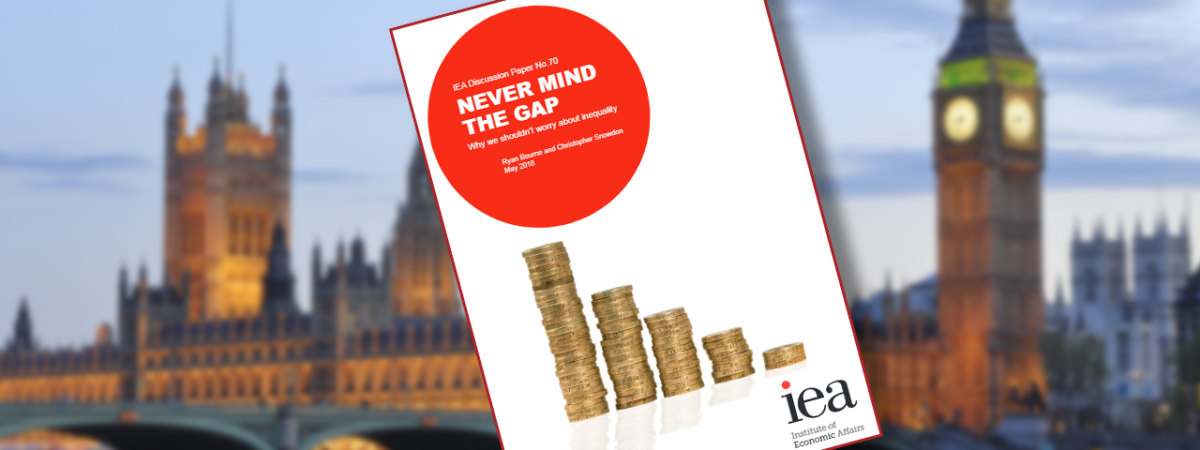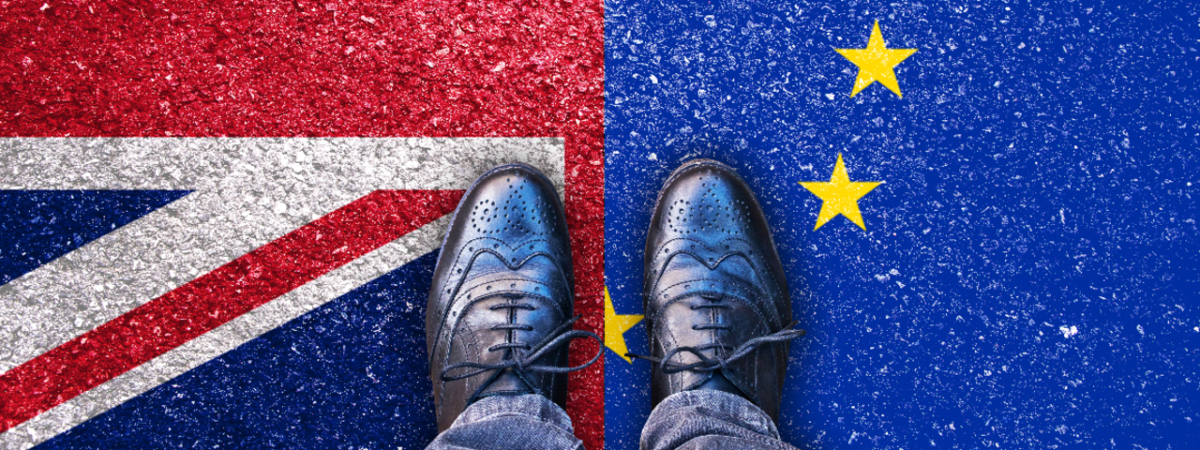Brexit as it might have been
SUGGESTED



24 June 2016
Prime Minister David Cameron holds a press conference, during which he concedes defeat, but also emphasises his determination to stay on, and make the best of it. He sketches out his vision for what he calls a “laid-back Brexit”:
“Let’s be perfectly honest. We weren’t expecting this result, and we are poorly prepared for it. This is not the right time to try to reinvent the wheel. We are not in a position to do that. We do not have the expertise. We do not have the capacity. And frankly: we also have other things to worry about. I don’t want Brexit to crowd out everything else over the next two years.
That’s why we’re going to make this as easy as possible. We’ll go for an off-the-shelf solution, namely what’s been referred to as the “Norway option”. Not forever, but as an interim solution, until further notice.
That option is not brilliant. But it’s good enough for now. And it’s the least complicated option, because it’s a model that has already been tried and tested. I don’t want to overcomplicate this matter. I don’t think we should try too hard to come up with something terribly original. I don’t want the perfect Brexit. I want a laid-back Brexit. Laid-Baxit, if you will. Relaxit.
Here’s what this means: we will leave the EU, and we will also leave the Customs Union. But we will, for the time being, stay in the European Economic Area (EEA), ie: the Single Market.
Here’s what will happen next: today, right after this press conference, the British government will submit an application for Britain to re-join the European Free Trade Association (EFTA). That’s because EEA membership does not exist as a standalone option; it has to be docked to something, either EU membership or EFTA membership. We will un-dock our EEA membership from the EU pillar, and dock it to the EFTA pillar instead. That’s all. Nice and easy.
I know that people have lots and lots of questions about Brexit. What I’ve just explained should already settle most of them. If you don’t know what Brexit will mean for you, just look up how the matter you are worried about is handled in Norway or in Iceland, and assume that, as a rule of thumb, it will be handled similarly in post-Brexit Britain.
I also know that a lot of people will be disappointed, because, yes, this does mean that freedom of movement will basically continue. To those voters, I say this: we have already begun to address some of the pull factors of immigration, and we will continue to do so. In fact, we will have some additional scope for this after Brexit, and we will use it to the fullest. But if you were hoping for a drastic decline in immigration, you are not going to get it. There are many competing aims to juggle, and we are not going to go for a monomaniacal cut-immigration-at-any-cost Brexit.
One final note: we cannot ignore the large regional disparities in voting patterns. It is clear that different parts of the United Kingdom want different relationships with the EU.
This is why we will give the devolved regions – Northern Ireland, Scotland and Wales – the option to apply for a legal status comparable to that of the Isle of Man or the Channel Islands. This means that they will be able to strike their own deals with the European institutions, if they believe that we are going too far, or not far enough, or in the wrong direction. Different parts of the UK will be able to have different Brexits, if they so choose.”
Immediately after the Cameron speech, the pound, which had dropped to its lowest level since 1985 in the morning hours, shoots up again. By the end of the day, it recovers its pre-referendum value.
25 June 2016
A group of backbenchers revolt against what they see as a betrayal of the referendum result. To them, the version of Brexit chosen by Cameron represents “Brexit in name only”, and “Remain in anything but name”. The Daily Mail calls David Cameron an “enemy of the people”. Protests are held outside Downing Street, as well as in various Brexit heartlands.
Asked whether he wants to simply ignore this backlash, the Prime Minister replies: “Yes.”
26 June 2016
Cameron’s Brexit speech provokes mixed reactions in Brussels. Some EU politicians reject the idea as cherry-picking, and insist that if the UK leaves the EU, it must also leave the Single Market.
But legally, this is going to be tricky. Technically, the UK’s EU membership and its EEA membership are two different kettles of fish, and an EEA member cannot simply be expelled out of spite.
Others in Brussels describe Cameron’s approach as pragmatic and sensible.
07 July 2016
A special EFTA convention is held to discuss the UK’s application. EFTA members raise a number of objections, but also emphasise that none of them are insurmountable. A UK-EFTA Accession Working Group is established.
21 July 2016
The first meeting of the UK-EFTA Accession Working Group is held, and judged a major breakthrough by all participants. Senior EFTA representatives from Norway, Switzerland, Iceland and Liechtenstein are pleased with the outcome, and confirm that if the negotiations continue at the current pace, the UK’s membership application will be approved and ratified before Brexit Day. The UK’s EFTA membership would then become effective the moment the UK leaves the EU, ensuring a seamless transition.
23 July 2016
A month after the Referendum, the UK government triggers Article 50.
24 July 2016
The first meeting of the UK-EU Brexit negotiation team is uneventful. Since free movement of people will be retained, the status of EU-27 citizens in the UK, and of UK citizens in the EU-27, is unaffected. There is not much to talk about.
25 July 2016
The UK government proposes to keep paying into the EU budget for the remainder of the current budget period, and then make a discretionary one-off payment, mainly to cover outstanding pension liabilities. After this, the UK’s general contributions to the budget will come to an end. The UK will only pay selectively for those programmes it participates in. EU representatives make it clear that they were hoping for more, but struggle to come up with a good reason why they should be entitled to more.
27 July 2016
Northern Ireland applies for an Isle of Man-type status, in order to be able to remain in the Customs Union, thus obviating the need for a customs border between Northern Ireland and the Republic of Ireland. This will lead to an anomaly: in the future, there will be a customs border within the United Kingdom, namely between Northern Ireland and the rest of the UK.
Cameron is, however, relaxed about this prospect: “Of course it’s an unusual arrangement. But so what? This is an unusual situation. What matters to me is that it works.”
29 July 2016
Consistent with its “Lazy Brexit” approach, the UK government declares its intention to simply join a number of existing free trade agreements, rather than creating new ones. It specifically mentions the North American Free Trade Agreement (NAFTA) and the Australia–New Zealand Free Trade Area.
“These are off-the-shelf solutions, and they work”, Cameron explains. “I see no reason to try to reinvent the wheel. Why not just join in?”
31 July 2016
Several of the UK’s major non-European trading partners’ initial reaction to the UK government’s proposals is positive.
August 2016
UK Accession Working Groups for NAFTA, the Australia–New Zealand Free Trade Area and various other FTAs around the world are set up.
27 August 2016
The UK government sets up a commission for welfare reform, the “Beveridge 2.0” commission. Its aim is to find ways of strengthening the contributory principle, which would, among other things, have the effect of making the system a lot less generous for new arrivals.
The group will also look at ways of linking the additional tax revenue associated with immigration more directly to the additional demand for public services associated with immigration.
04 September 2016
The government declares that the agricultural subsidies contained in the EU’s Common Agricultural Policy (CAP) will be phased out after Brexit, and that the CAP’s protectionist measures will cease to apply. But the announcement contains a substantial sweetener for farmers: after Brexit, agricultural land will be fast-tracked for planning permission, and exempt from a number of planning restrictions. This means that farmers will be able to realise a windfall profit by selling land to developers.
23 September 2016
During a press conference, Cameron explains: “I was initially opposed to Brexit, but this is turning out to be much easier than expected. It’s only been three months since the referendum, or two months since we’ve triggered Article 50, but all the big issues are already more or less sorted. I’m going to leave the rest to the Working Groups. As far as Brexit is concerned, my job is pretty much done.”
This article was first published on CapX.
3 thoughts on “Brexit as it might have been”
Comments are closed.





Yes – If only we had rational politicians – no chance.
Some of this is still possible. Joining NAFTA and the NZ-Aus agreement, for example. Free(ish) movement with no welfare for new immigrants, too. It’s a possible future, not just an alternative past.
“This means that farmers will be able to realise a windfall profit by selling land to developers.”
Perhaps – but only if their farms are located in areas where new homes are actually needed/ commercially viable.